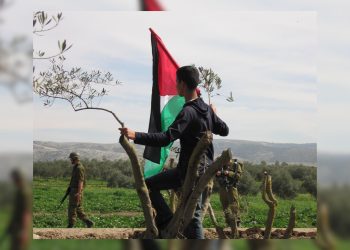For the past month I have been working with RAVEN (Rural Action and Voices for the Environment), an activist research project. We work with and support champions for sustainable rural communities and the environment in New Brunswick.
As a self-described “rural advocate” with RAVEN, my experience has been wonderful. My role is to focus on food security in the Nashwaak Valley – as the leader of the Growing a Better Future initiative.
The valley is part of a watershed that starts at Nashwaak Lake (close to Napadogan) and empties into Wolastoq (Saint John River) at Barker’s Point in Fredericton. The largest community outside Fredericton is the Village of Stanley with a population of about 400 people.
The Growing a Better Future project goal is to have more food grown locally and sustainably and have that same food for sale in rural areas. If we can come up with models and methods that are simple, practical and inexpensive to start, we can test out these ideas in other communities.
We also love the idea of conceptualizing communities along watersheds, an idea promoted by Adje Prado, Lawrence Wuest and other New Brunswickers. This keeps smaller communities tied together along the river and keeps our decision-making rooted in the natural environments that we depend on.
With the exception of a few products like potatoes and blueberries, New Brunswick is very far from being self-sufficient in our food needs. When I go to the chain grocery stores in the winter, I see no New Brunswick potatoes, but I do find potatoes from Prince Edward Island and mysterious locations like “product of Canada,” with no clue to the source of that food. Although we benefit in convenience, we suffer in insecurity.
Recall the blizzard that rocked Newfoundland in January this year and shut down food and product distribution for about six days. A photo in a CBC story shows nearly empty shelves, while according to CBC, trucks sat at port 300 km away, loaded with food. Those of us not living on islands like Newfoundland are still vulnerable to disruptions in our food supply. This can happen for political or regulatory reasons at the US border, because of the changing climate resulting in severe weather, highway closures and power outages, or with steep price fluctuations dictated by climate change and global food commodity pricing. Do you recall in 2016 when broccoli and cauliflower prices doubled and hit $7.00 a bunch in Atlantic Canada grocery stores? That was because hot and dry weather in California shortened the growing season.
Through my work on this project, I have had the opportunity to meet with primary producers, home gardeners and community groups. People are motivated and inspired to move towards rural self-sufficiency! On January 26 a group of a dozen people interested in growing food and being more self-sufficient braved freezing rain and terrible roads to come out and connect with each other in Stanley.
Neighbours were meeting for the first time, there was talk about sharing tools and equipment, group seed ordering, and starting a community cooperative produce stand. Three people in the group had moved to the community in the last few years. Together, we will meet monthly to embark on cooperative projects and learning opportunities. This sort of group is easy to start and we could help anyone interested to get one running in their own community.
Other interesting ideas are being worked out for the project. “Renovating” untended orchards will be the next idea to explore. Many apple orchards are sprinkled all over the Maritimes in various states of neglect, and I believe they can be reinvigorated very cheaply with pruning, soil building and grafting. These sites might become businesses, cooperatives or U-Picks. Apples are part of our heritage diet and store well for long-term food security.
Speaking of storage, we recognize that many people would like to buy local food in bulk or grow more of their own, but we have lost the art of keeping cold cellars and pantries. With some funding, we would like to run workshops on both, including creating a multi-family cold cellar that could be used for demonstration. Farm stands and a bit of creative marketing might be the way to get more food sold in rural areas. The Just Friends Food Bank and Community Centre in Stanley has a brand-new facility with a beautiful teaching kitchen and community space. We hope to learn more about fermentation and other types of cooking this year as well.
There are of course many challenges to creating rural food security, a lack of skills in using raw, whole ingredients, and a culture of buying the cheapest food available. Very real poverty that limits peoples’ food choices, and a low population density also need to be well considered. We should not be discouraged though; the resources of organized and committed folks far outweigh the challenges. We all need to keep in mind that farmers really do need support. If we don’t spend out dollars locally, we cannot expect that local food will be available to us. After all, growers need to make a living too.
Anyone living in the Stanley area interested in learning more about opportunities to sell local food during the 2020 season can stop by our meeting on Tuesday, February 18, 7pm at the Just Friends Stanley Food Banks and Community Centre. The next Stanley Growers meeting will be Sunday, February 23 from 2 to 4pm, also at Just Friends 30 Centennial Street, Stanley. For more information about meetings or projects, you can email amypfloyd@gmail.com.
Amy Floyd leads the Growing a Better Future initiative for RAVEN. She lives in Taymouth.


![‘Continuum of genocide’: Pentagon funding of Sisson mine provokes renewed opposition from Wolastoq Elders [video]](https://nbmediacoop.org/wp-content/uploads/2025/07/SissonMine-2-350x250.jpg)



![Student accepted into UNB grad program stranded in Gaza awaiting Canadian study permit [video]](https://nbmediacoop.org/wp-content/uploads/2025/11/BiometricsNov72025-1-120x86.jpg)



